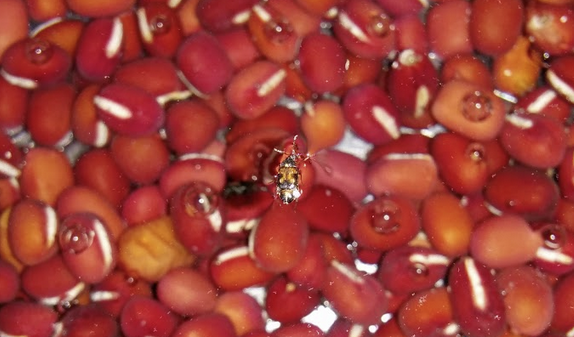First I diversified my source of protein by eating beans. Then I was glad to find that it's a lot easier to find organic beans than organic beef. Even better, I could stock on a variety of beans and reduce my visit to the health food store to once every six months.
Now the bad news. Before cooking beans, I submerge them in water overnight. I'm now finding that one kind of beans is infected with insects. These living insects float to the surface. This happened despite that I stored the beans in an airtight container. Given the airtight storage, I'm guessing that I purchased the beans already contaminated, possibly with eggs.
Is this one of the distasteful surprises that one must put up with once in a while if one chooses organic beans? I'm guessing that the very reason we humans are interested in organic food—the absence of pesticides—is also the reason why insects will get attracted to them. Although they may be present just as much in other non-organic food, except that they would have perished.
In the old days it was apparently not uncommon to buy apples from the store and once in a while find a worm. These days even organic apples never show these undesirable proteins, possibly as a result of food irradiation.
Especially if you are vegetarian, I'd like to hear from you whether it's possible to look around for better stores, or whether this is part of the deal.

